Everything you need, at a glance
Our Insights are detailed and well researched. They keep a pulse on what’s happening in the market and allows you to stay ahead of the curve.
Sign up to our newsletter to get exclusive insights and never miss an article.

Find out what elements of your salary package you can negotiate if you’re leaving consulting for ‘industry’.
Consulting firms tend to have pretty simple compensation packages – especially at below Partner level. So if you’re leaving consulting for ‘industry’ what elements of the pay package could be available to you? Or could be open to negotiation?
Consulting firms pay a basic salary and a bonus. Typically at the more junior levels bonuses range from 10-20% perhaps up to 30% for a high performer in a good year for the company. Some of the larger companies have benefits like health care and company pension contributions. Many of the smaller firms don’t even have that. So when one comes to leave consulting, one can be pretty naive as to what other companies may offer. Here are some elements for you to think about and you’ll see that there are plenty of building blocks to consider. The more senior the role you’re taking, the more of these elements are likely to be available and open to negotiation.
Are you looking for a senior role outside of consulting?
Have a look at our live positions
SIGN-ON BONUS/GOLDEN HELLO
Not hugely common but no unheard of particularly if you’re leaving your current company at a time such that you’re sacrificing a bonus that’s only a few months away.
GOLDEN HANDCUFFS
This can take the form of a cash lump sum or stock. The idea is that you only receive it if you stay working for the company for X number of years. Options & company stock (see immediately below) have similar commitment tie-ins.
EQUITY/SHARE OPTIONS
Particularly relevant if you’re joining a growing start-up in a relatively senior position. These generally have vesting periods i.e, you will need to stay with the company for a certain period of time in order for the equity/options to become yours.
COMPANY STOCK
Like options but for larger corporates. The company will give you X number of shares per year (generally X is a multiple of your basic salary). Again, these shares have a vesting period – generally 2 or 3 years – before they are yours and can be sold (or held). In that way, they are commonly referred to as Long Term Incentive Programmes (LTIPs). For very senior positions – like FTSE100 CEOs – the vast majority of annual compensation will be in stock.
SHARE SAVE SCHEMES
These allow you to buy company stock – often at a discount to market value.
BASIC SALARY
Often open to negotiation as companies generally have salary bands for roles dependent on the seniority categorisation (e.g, this Growth Manager role is a level 5 and the basic salary band for level 5 is £72-90k per year). Usually, a company’s opening offer will be towards the bottom of a salary band which leaves them room to move – and room for you to negotiate – while keeping the seniority categorisation the same. Companies will be reluctant to bring you in on a salary right at the top of the band as it gives them no room to give you a pay rise without changing your seniority. So be wary of the knock-on effects of pushing too hard.
BONUS
Tends to be related to individual and company performance. However, some companies will set a cap in your contract at a certain % of basic salary. You may be able to negotiate the cap upwards. And this cap can often be far higher than the 10 or 20% you’re used to, particularly in a company realising aggressive growth targets.
CAR ALLOWANCE
In the UK, most larger firms will be able to pay car allowances. This can often be taken as cash (and can, therefore, be treated as basic salary). Like basic salary, car allowances are often set in bands relating to seniority so you may be able to request an allowance towards the top of your band.
PENSION
Larger companies can offer quite generous pension contributions. It can be hard or even impossible to negotiate an improved contribution but the range could be from:
- the company makes all of the pension contribution (generally a % of your basic salary) and you have the option to contribute also but don’t have to;
- the company will double match your contribution to a certain cap (i.e, if you contribute 4% of your salary, they will put in the equivalent of 8% of your salary);
- the company will match your contribution (i.e, 4%, 4%).
Remember that pension contributions in the UK come out of your salary before tax so will reduce the earnings that you are taxed on.
BENEFITS
There are all sorts of other things that a company can offer you. Some of these will be taxable benefits (i.e, count as something you have to pay tax on) and others not. The list includes life assurance, critical illness cover, private healthcare cover (for you and often for your family), dental care cover, commuter cost loan, season ticket loan, gym membership, cycle to work.
RELOCATION
If you’re being asked to take a job abroad, these are some of the costs that a company may cover:
- your accommodation abroad;
- travel to your new place of work;
- shipping your stuff to your new place of work;
- return trips to your home city (i.e, x number of trips per year);
- private school fees for any children;
- daily per diem on top of your salary to recognise the potential inconvenience of having to relocate (often the per diem amount is negotiable and also relates to an assessment of the risk/comfort of the country you’re relocating to);
- some or even all of your living costs abroad (e.g, utility bills).
CARRY
This is particular to private equity and is effective equity in a portfolio company vesting on sale.
LEADERSHIP COHORT
Although this is not a monetary benefit, it can help your career trajectory. Lots of companies have a “top 100 leaders” or “top 250 leaders” cohort. These cohorts tend to meet once a year or so for group training, networking or conferences. If you’re entering into a manager position, you may be eligible for such a cohort and might want to discuss it after an offer has been made.
Movemeon: jobs, insight, events and career tips for (ex-)consultants and freelancers. Click here to create a free account and access all our opportunities.

Our first interview is with a former management consultant. They explain their role as a strategic assistant and provide you with tips.
The CEOs of many leading companies employ a ‘Strategic Assistant’ as a right-hand. They are the CEO’s eyes, ears and problem-solver across the business. They are often called ‘Chief of Staff’ or ‘Business / Commercial Assistant’.
- Explore current opportunities on Movemeon.com
- Solve a business challenge, hire a Movemeon professional
- Follow Movemeon for live job posts and leading professional content
This sounds like a fascinating role – but it’s difficult to picture exactly what it entails and therefore whether it might be a good option for you. Fear not – help is on hand! We’ve been busy interviewing successful young professionals who are currently in this job. We’ll publish a series of articles in which they will bring the role – good bits and bad bits – to life.
Our first interview, below, is with a former management consultant.
What does your role as Strategic Assistant to the CEO entail?
I work on multiple projects (either strategic long-term projects or else taking control of urgent issues that are troubling the Board), acting as a “gatekeeper” to the CEO, trying to resolve problems that don’t need a lot of his/her attention, and finally to ensure that various departments are working collaboratively by making connections that otherwise wouldn’t be made. This is my experience but the ‘Strategic Assistant’ role is very fluid, almost by definition, and will probably vary from company to company.
WHAT COMPETENCIES / STRENGTHS ARE MOST HELPFUL IN THE ROLE?
- An ability to manage multiple projects across disciplines is very important – it’s hard to plan your workload as new projects will crop up that demand your attention.
- Interpersonal and influencing skills are vital as you don’t have the “hard power” of the CEO, while you still need to keep people moving in the right direction.
- Problem-solving and active listening – many projects crop up where the manager responsible just needs someone to listen to the problem and help them to come up with a solution.
WHAT DO YOU LIKE MOST / LEAST ABOUT THE ROLE?
I love the varied nature of the role, the insight that it gives you into running a business as the CEO, and that you get to build relationships across the organization.
Some of the downsides are that you don’t have your own P&L, nor a large team to manage, or any direct line of control and that you can be pulled from project to project.
WHAT OPPORTUNITIES HAS / WILL THE ROLE OPEN UP FOR YOU?
Since taking on the role, I have much more credibility as an “industry” person rather than a “consultant”. I also have an appreciation and some experience in just about every role in a company in my industry. With this experience behind me, it makes me feel quite comfortable taking on a senior management role.
WHAT WOULD BE YOUR ADVICE FOR ANYONE CONSIDERING THE ROLE?
- The CEO is as important as the company – this is a very close relationship, as you will need to understand deeply how they work, and will hopefully learn a lot from them.
- This is a fluid role, so it helps to define some expectations of your contribution upfront.
- There can be a lot of analysis required to fulfil the role – if possible, request an analyst or a small team to support you, so you can focus on the big picture and on building relationships across the company.

Event - Parita Doshi (ex-Oliver Wyman), Seigo Robinson (ex-Charles River Associates), Sophie Runcorn (ex-Deloitte) and Jeroen Sabbe (ex-Bain & Co)
Movemeon and On Purpose hosted an event for consultants and ex-consultants interested in building socially impactful careers.
We were joined by:
- Parita Doshi (ex-Oliver Wyman),
- Seigo Robinson (ex-Charles River Associates)
- Sophie Runcorn (ex-Deloitte)
- Jeroen Sabbe (ex-Bain & Co)
In a discussion of the best way to make a successful shift to social impact. Below, you’ll find 5 of the evening’s top tips.
1. HAVE CONFIDENCE IN THE SKILLS & ABILITIES YOU BUILT AS A CONSULTANT
Consulting offers a unique vantage point – it allows you to immerse yourself in businesses while also being sufficiently removed from them to be able to ask the bigger question, such as “how does this business/market/country work?”. This means you build a great, broad skill-set that will be highly valued wherever you go after consulting. Your skill-set, and specifically your drive for efficiency as the most valuable thing an ex-consultant can offer their new employer.
2. GET OUT OF YOUR COMFORT ZONE
Going from consulting to a social enterprise or any other form of socially impactful work doesn’t happen overnight. You need to first learn what your purpose is – what it is that makes you tick; what it is you want to change in society. To be able to work this out, you need to try lots of new things, and you need to get out of your comfort zone.
Don’t be scared of doing this, and remember that this means actually trying yourself in new work settings (travelling around India won’t help you discover your purpose at work, even if it is fun!). The worst that can happen is that you realise you don’t want to (or need to) leave consulting, and you go back to it with a new sense of purpose.
3. BE PATIENT
Even if you have the courage to really get out of your comfort zone, it can come as a surprise how long it takes to really understand what kind of work you want to do. So be patient, and make the most of each stage of this journey to social impact.
What does that actually mean? Get really stuck into each social enterprise or impactful project you join, so you can actually realise whether it’s what you want to do. What does it not mean? Sitting at home/staying in your current role thinking about what you might want to do and waiting for the perfect opportunity to come along. You need to seek out opportunities and learn from them.
4. COME UP WITH A SET OF CRITERIA YOUR IDEAL JOB/ORGANISATION SHOULD MEET
While you need to be patient and try new things, you should also periodically take the time to review what you already know about what you like and dislike. Use your experiences to date to refine a set of criteria your eventual job or organisation should meet, then use these criteria to reach out to people. This is perhaps the most important part of the transition process – talk to people who have a good overview of the social impact sector, ask for coffees, etc. But don’t waste their time and yours with general interest talks. If you come with clear criteria, they can give you much better examples of the organisations they know of. Then you can go ahead and reach out to those organisations.
5. DON’T ASSUME YOU HAVE TO STOP CONSULTING
After a period of discovery, you might find that you don’t want to give up what you like about consulting. The challenge then is to decide whether the major firms allow you to have sufficient social impact (by your own definition of social impact – this is entirely personal). If you decide they don’t, you can look for a new firm with values that align with yours. You can also combine consulting with social impact work, for example by doing pro-bono projects.
Alternatively, you could go freelance and use your consulting skills to assist organisations you believe in. If you choose the freelance route, you will have the freedom to turn down projects that don’t get you closer to your social impact goal – however strange turning down business might feel at first!
Movemeon: jobs, insight, events and career tips for (ex-)consultants and freelancers. Click here to create a free account and access all our opportunities.

Interview with the Rachel a former consultant, director and now founder of Gritstone. Rachel shares her journey with Movemeon. Click here to view.
RACHEL, PRODUCT DIRECTOR
Rachel is nine years into a varied career which has already seen her working in venture capital, management consulting, start-ups and as a Board member of Europe’s top flight search site, Skycanner after they acquired her start-up, Zoombu, in December 2010. Rachel is now CEO & Founder of a product development company.
She kindly agreed to share her inspiring career story working at Sky Scanner with us:
---
WHERE DO YOU WORK?
I previously worked as the Product Director for Skyscanner, Europe’s leading flight search engine. I now run my own product development company.
WHERE DID YOU START YOUR CAREER?
I studied engineering at Oxford University and my first role after graduating was with the venture capital firm Oxford Capital Partners, where I evaluated new science and technology investments. I really enjoyed the role and industry but felt that I wanted to gain broader business experience, so moved into a position as a management consultant with Diamond (recently acquired by PriceWaterHouse Coopers). Three years in, I got itchy feet and was keen to do something more hands-on. So when an opportunity to co-found a company came along, I jumped at the chance.
HOW MANY YEARS INTO YOUR CAREER ARE YOU?
Nine years since graduating.
HOW MANY COMPANIES HAVE YOU WORKED FOR SO FAR IN YOUR CAREER?
Four, but if you count the clients I worked with when consulting, more like nine. I also interned at an engineering consultancy during my degree, so that’s ten.
HOW MANY HOURS A WEEK DO YOU WORK?
That’s a difficult one, as I’m not sure what counts as a typical week! I’d say around 55 hours. I usually try to take weekends off.
WHO DO YOU REPORT TO?
At Skyscanner I reported directly to the CEO.
WHY DID YOU DECIDE TO LEAVE YOUR PREVIOUS JOB?
I co-founded the travel search company Zoombu with a friend and colleague from university, Alistair Hann. We worked on the business for two years building up the core technology, partnerships and the team. Our business was acquired by Skyscanner in Dec 2010 and I was working with Skyscanner to make their travel search engine even better using what we learned at Zoombu.
WHAT ARE THE BEST BITS ABOUT THE JOB?
The culture at Skyscanner is brilliant –it’s very dynamic and innovative and every week is different. The company is now 100 people strong, profitable and growing quickly, but it still has the same start-up environment that I enjoyed about Zoombu. We’re creating lots of exciting new aspects to the product and the work of my team directly contributes to the bottom line, which is rewarding.
HOW DOES YOUR EXPERIENCE FROM YOUR PREVIOUS JOB(S), HELP YOU IN YOUR NEW ROLE?
Zoombu was tackling a lot of the same challenges as Skyscanner; travel search is a complex field of software engineering, and the business model is challenging to get right. Running a start-up is preparation for any role, but particularly fitting for my current role which is at the intersection of business and engineering and involves spinning many plates at any one time.
WHERE DO YOU SEE YOURSELF AT THE HEIGHT OF YOUR CAREER?
Running my own company, which I have just founded.
WHAT ADVICE DO YOU HAVE FOR TALENTED YOUNG PEOPLE BUILDING THEIR CAREER?
Don’t be afraid to try new opportunities or to take a leap into a new venture. It’s all too easy to get into the trap of waiting until the next promotion before trying something new, but if you’re not learning and constantly being challenged, it’s time to think about what’s next.

A background in consultancy with a technological understanding can really set you apart. Click here for our co-founders insight into McKinsey & consulting.
Why consulting and tech skills are the perfect combination for the future world of work
Most people enter consulting as it opens doors. Or, to put another way, it puts off having to make a decision. This is definitely not a bad thing when you’re a graduate; your knowledge of the potential careers out there is understandably limited.Consultancy offerers an opportunity to better understand what opportunities are out there, whilst not limiting your choices.
The adaptability of consultants
Consultancy opens doors for very good reasons.
- Firstly, it tends to attract “all-rounders”. The assessment process for consultants is focused on both logical/ structured thinking, and your potential to be strong at building client relationships.
- Secondly, consultants are then trained, normally for at least 24 months, in the consulting toolkit. The hard skills are regularly referred to as problem-solving, corporate presentation/ communications, analytics. However, in my opinion, the softer skills are just as important: attention to detail, a continual focus on personal development, ability to build client relationships/ stakeholder management.
The result is that ex-consultants can go into a wide variety of commercial, analytical and senior management roles.
The future of work
With the growth of technology, new jobs have been created. In particular, we’ve seen a huge growth in product management, data science, AI and analytics roles. The challenge in the market is one of supply and demand: there are far more opportunities than there are people with relevant experience.This has resulted in two things:
- An increase in the salary paid
- More flexibility in the backgrounds of candidates
Setting yourself apart
Despite the supply-demand imbalance, product management roles, in particular, are extremely competitive.Combining a background in consultancy with a technological understanding can really set you apart. The grounding from consulting in structured thinking, commercial acumen and senior stakeholder management combined with knowledge of tech, will put you in a unique position to help drive tech products and platforms forward.
A passport for the tech industry
Combining a background in consultancy with a technological understanding can really set you apart. The grounding from consulting in structured thinking, commercial acumen and senior stakeholder management combined with knowledge of tech, will put you in a unique position to help drive tech products and platforms forward. This will help you to really differentiate yourself as a future leader in a tech business.
If you are looking to hire and would like more information - Click here to speak to our team

Analysing when our candidates apply and who gets the job, we noticed that 15% of them applied the day when the job was posted. Click here to read more insights.
While job hunting we think that having all or most of the requirements and being persuasive during the interview process are the most important drivers of our success with that job.Despite these aspects being really important, there is a third factor that we often undervalue: the timing of the application. Even if your profile is perfect for a position, having other candidates who applied before in more advanced stages can really reduce your chances of getting the job. We had a look at our data and the result is impressive. Applying the first week gives you 8 times more chances of getting the job.Analysing when our candidates apply and who gets the job, we noticed that 15% of them applied the day when the job was posted. Even more impressive is that half of them applied within the first week (53%) and 70% in the first two weeks.Looking at freelance jobs, we saw that being among the first candidates to apply is even more critical: 35% of successful candidates apply the day when the job is posted and 82% within one week.These numbers show that having all the requirements for a position and doing great during interviews are not the only relevant factors in getting a job. Make sure to always be one of the first appliers for a job you like, in particular for the most popular ones.Based on the above, receiving a notification as soon as a job is posted can be key for getting that job. That’s the reason why we suggest you turn your job alerts on and update your preferences to see all the jobs that match your skills and interests.Click here to see if your job alerts are on, and to update your preferences
Movemeon: jobs, insight, events and career tips for (ex-)consultants and freelancers.Click here to create a free account and access all our opportunities.

What are the possible channels to find new freelance projects? We share our tips - click here to view movemon's freelance insight.
One of the key make or break challenges you’ll face as a freelance consultant is going to be your ability to market yourself to new and existing clients to find a new freelance project.
With a growing number of permanent consultants opting to sample life as a freelancer, a greater emphasis has been put on developing new business channels to find project work. It’s now difficult to rely on your trusted black book to keep your project flow healthy – it’s time to get out there and make new connections.Now to the key question – what are the possible channels to find new freelance projects?
Movemeon
Naturally, the first (and best) place to look for new freelance project roles is right here on the movemeon website (don’t blame us for being a little biased).
Existing clients
Good business development is not just about trying to market yourself to new clients. It’s imperative you maximize your existing relationships by keeping former clients updated on your availability/new skills. It could just be a subtle catch-up e-mail to a former client to ask how the project is going. You’ll be amazed by the amount of new work that’s generated from clients who magically think of a piece of work you’d be perfect for, now they know you’re available.
Your network
Keep things like your LinkedIn/Xing profile updated with availability/skills etc. This ensures you’re maximizing your chances of inward business development. There’s nothing nicer than a client knocking on your door with a new freelance project, but they’ll only be able to do so if you keep your profile updated.
Other freelancers
Networking with other freelancers is a great way to develop new business and share experiences/insight. If a freelancer is contacted about a role but is unavailable, a natural instinct is to refer someone else who matches the profile. This is particularly useful if you’re on the more junior end in terms of years of experience. Senior freelancers are always on the lookout for good junior consultants when building a team and with utilization rates remaining high at the junior end of freelancing, it’s always useful to be referred by another freelancer for new projects.
Agencies
Although not ideal, the majority of new projects that are not directly sourced will be through recruitment agencies. We suggest using 1-2 good agencies who are able to deliver a healthy project flow and operate with transparency and honesty. Be sure to read this article on what percentage of day rate you are really receiving – food for thought when thinking about day rates and using agencies.
Job boards/Career pages
Companies sometimes do advertise freelance project work on their careers page/through jobs boards so it’s always worth having a quick look once in a while.
Team up
If you’re finding new projects tough to come by and you have a specific skill/domain knowledge, find other freelancers with similar skills and team up. This will allow you to take on new larger projects and assemble teams to execute project work. An additional benefit of teaming up is, with a consulting ‘brand’, you’ll be developing brand equity through strong client reviews that should keep new project flow healthy as word spreads of your consulting offering. If you’re teaming up and need additional resources – Movemeon already partners with a number of smaller consultancies providing freelancers.
Word of mouth
If you build up a strong track record of solid performance as a freelancer, you’ll find clients contacting you directly. Good work speaks volumes, and clients will feel at ease engaging you because of your track record.
Network
It’s simple: the more potential clients you meet, the more likely it is one of them will call you with a new freelance project.These are just a few possible routes to finding new projects as a freelancer. It’s always worth bearing in mind that it’s difficult to predict future project flow – so it’s imperative you remain proactive in your business development. Don’t run the risk of assuming another project is waiting for you at the end of your current engagement; start your business development before your current project wraps up.
– The MMO Freelance team
Hope you enjoyed this article – we regularly publish our content on our LinkedIn page so if you want to keep in touch just click through.

Here’s a guest blog from one of our freelance members – Helen, a former McKinsey Consultant whos moved into the non profit sector. Click here to view.
One of the key aims of MMO Freelance is to help our freelance members connect with each other. Through freelance events, guest blogs and personal introductions, we’re hoping to create a freelance network that is better connected and hopefully able to lend a helping hand to each other through project leads, introductions, or just a Friday beer.
Here’s a guest blog from one of our freelance members – Helen, a former McKinsey Consultant.Are you looking for a freelance opportunity as well? Click here to browse all our live jobs
How long have you been a freelance consultant? & what is your industry focus?
I’ve been a freelancer for just over 18 months. I focus on the non-profit sector, which includes government, public sector, big charities (mostly international NGOs because that’s my professional background) and some philanthropic organisations.
Why did you decide to become a freelance consultant?
It was a long process, actually. I was working at Comic Relief, my previous role, on a temporary basis – I had agreed to go and help them set up Red Nose Day in America. It was always on a part-time basis, and I was approaching the end of that contract, and starting to think about what I wanted to do next. I was quite clear that I wanted to do more of a portfolio of things: continue with the strategy work because I loved it, but also increase the amount of creativity and the number of workshops I was doing.So I decided to go freelance for two reasons:•more flexibility, being able to work in a different way ;•The variety of things I wanted to achieve was difficult in a ‘traditional’ role. I couldn’t find a job that did all the things I wanted to do, so I designed my own job instead.
What most surprised you about the change from perm to freelance?
Some things were as expected. The things that surprised me the most were how much I liked the flexibility. There was really no downside. I’d been a bit worried that there would be a negative aspect that I hadn’t anticipated. The freedom that comes with only representing yourself is really refreshing – I hadn’t really anticipated that, much as it is obvious looking back.
What one thing would you really want to know, If you were to just be considering the move to freelance consulting now?
I’d want to be really clear why I was making the transition because you have to manage your time really actively. When I went freelance, I wanted to be really flexible and have variety in my work. I didn’t want to be working full-time, and I wanted to work across a number of different projects at once. I could have taken the first project that came along, a 6-month project with one client. That would technically also have been freelance, but it would not have fulfilled any of the goals I had. So being really clear why you want to move into freelance work, and then building your career around that, is really important.
One main pro & one main con of freelance consulting?
Pro: Flexibility. I’m very fortunate to be able to work from almost anywhere and on almost anything.Con: Zero visibility of what’s coming down the pipe. Again, you have to be really comfortable with uncertainty. For me, that’s partly by design, as I chose to do a model where I was working across multiple clients at the same time rather than working on one big project. If I’d done the one big project model, it would have been easier to create a project pipeline because you can say “well, I have 3 months until the end of my project so I will start to look for work.” Whereas as it is, that would be really hard because I’m always doing something for someone and that work goes up and down in its intensity. So it’s difficult to build in future-proofing and know a long time in advance when I will be able to take on more work.
Would you consider going back to perm?
I don’t think I’d go back to permanent consulting, but I would go back to other permanent work, were the job right. It’s about knowing what you want. I’m pretty clear what the job would have to look like and I’m not sure it exists at the moment!
Looking for a freelance opportunity?Click here to have a look at our live jobs
Not a member yet?Click here to create a free account

Interview with former OC&C strategy and retail consultant, Rebbecca shares insight into freelancing in London and north England. Click here to view.
One of the key aims of MMO Freelance is to help our freelance members connect with each other. Through freelance events, guest blogs and personal introductions, we’re hoping to create a freelance network that is better connected and hopefully able to lend a helping hand to each other through project leads, introductions, or just a Friday beer.
Here’s a guest blog from one of our northern freelance members – Becci Blues, a former OC&C Consultant.
When a (wo)man is tired of London they are tired of life
According to Samuel Johnson. Sorry Sam, but I beg to differ.
As a strategy consultant freelancing in Yorkshire and the north of England, life is pretty awesome. Don’t get me wrong, my love affair with London that started as a fresh-faced graduate continues to this day. It’s a dynamic, fabulous city full of interesting people doing inspirational things. London was where I started my career at OC&C, later moving to Amazon (at the time-based in glamorous Slough but let’s stretch our imaginations and include that in London). I’d always had a passion for retail and working first on projects for leading multinationals, and then operationally for the market leading online retailer was in equal parts challenging and rewarding. And it didn’t hurt that my role at Amazon involved buying a lot of shoes.London had served me well.
Gouda life
However, a few years down the line the grass was starting to look greener elsewhere. To be specific, the soft grass of North Yorkshire was looking particularly appealing. So in 2014, looking for new challenges and a garden, I moved to the beautiful, ancient city of York and embarked on a crazy, fun-filled and somewhat smelly 18 months running my own award-winning cheese business. It had always been an ambition of mine to run my own retail business and whilst the cheese business was a gouda (sorry) and delicious introduction to the world of small and startup businesses, I eventually decided it wasn’t going to grow to be the right business for me. In late 2015 I sold the business and found myself based in beautiful Yorkshire and looking for the next challenge.With my CV now encompassing strategy consulting and operational skills from businesses large and micro, I decided it was time to go back to consulting. Wanting to remain (to some extent!) master of my own destiny, freelance consulting seemed the way forward, operating across all sectors but specialising in retail and charity, having undertaken and thoroughly enjoyed several pro bono projects alongside my retail experience.
Freelance
I am now in the process of building my freelance network in the north, and whilst it’s not quite trail blazing, it is certainly a little unusual as a freelancer to be based outside London. The upside is that there are fewer people with my specific skill set, knowledge of local markets, and willingness to be based on projects north of Watford Gap. The downside is that there are fewer projects, and making the right contacts to find out about opportunities takes a little bit of creativity.In reality, if I were London-based I’d probably keep my eye out on Movemeon, sign up to a few agencies and I’d hope to have a fair stream of work in the pipeline. But then I’ve never been one to take the easy option!Movemeon have been invaluable in helping me explore the options for freelancing in and around Yorkshire and further afield. The importance of establishing a strong network of local contacts is coming through clearly, and one area I am hoping to strengthen is my connections to other freelance consultants working in the north of England. The goal would be to set up a boutique network of consultants allowing us to share contacts, experiences, and the odd coffee, raising profiles and increasing access to projects.Perhaps you are looking for a way into new companies, perhaps you want to explore a new sector or want to be able to offer a trusted, alternative consultant to your clients when you are too busy to take on more work. Whatever you are interested in, let’s chat!If you are a freelance consultant based in and around Yorkshire or the North of England or know someone who is (or perhaps you’re just thinking about it), I’d love to chat. Drop me an email at rebecca@bluesstrategy.comAnd if you don’t live in Yorkshire you should come to visit – it’s only 1hr 50 minutes from London on the train and the grass really is greener.– by Becci
Curated opportunities, for the leaders of today & tomorrow
Exclusive jobs, projects & data-driven insights to support your career success.
Join your peers & create a free account. Discover roles in under five minutes.


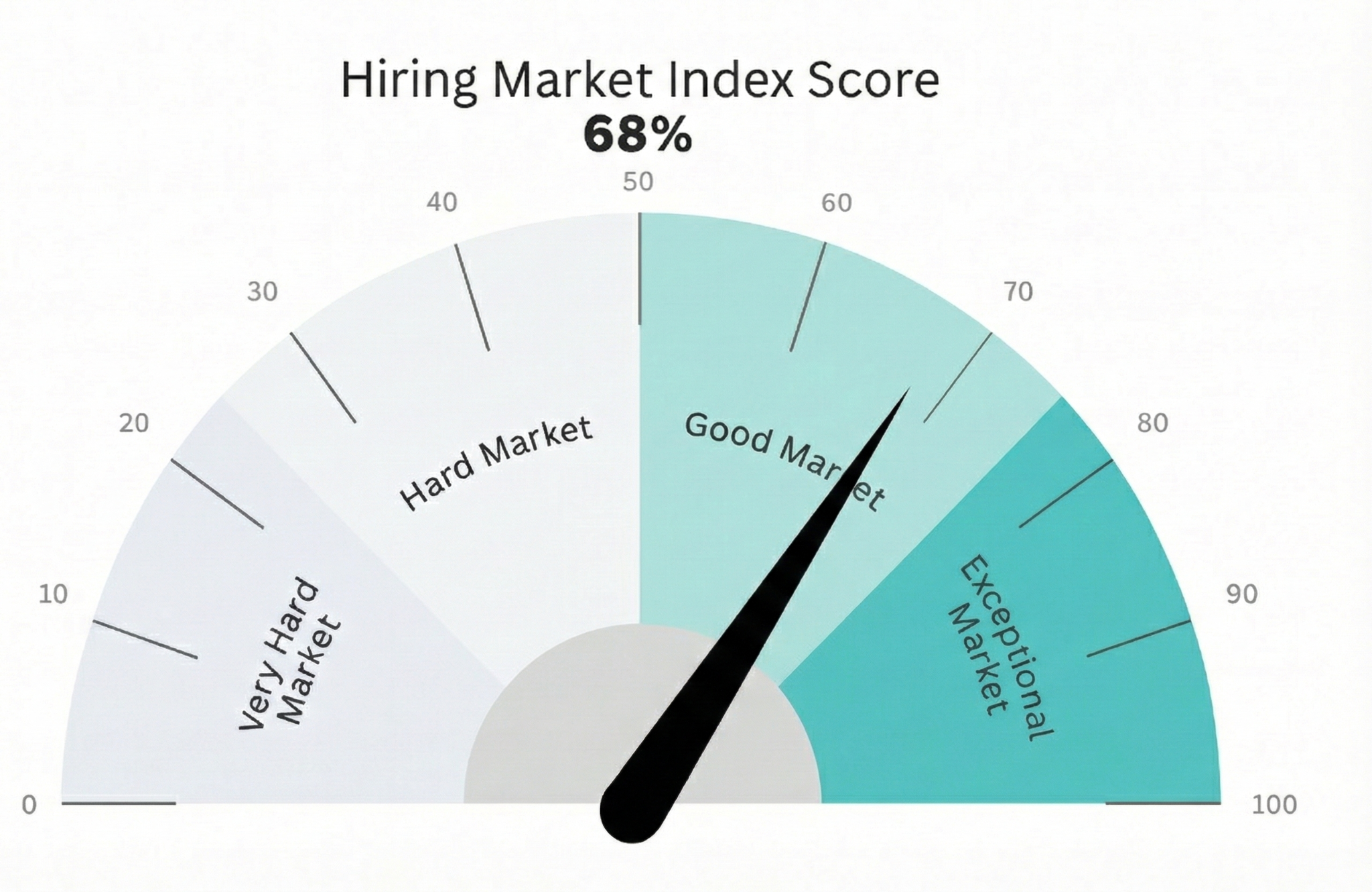
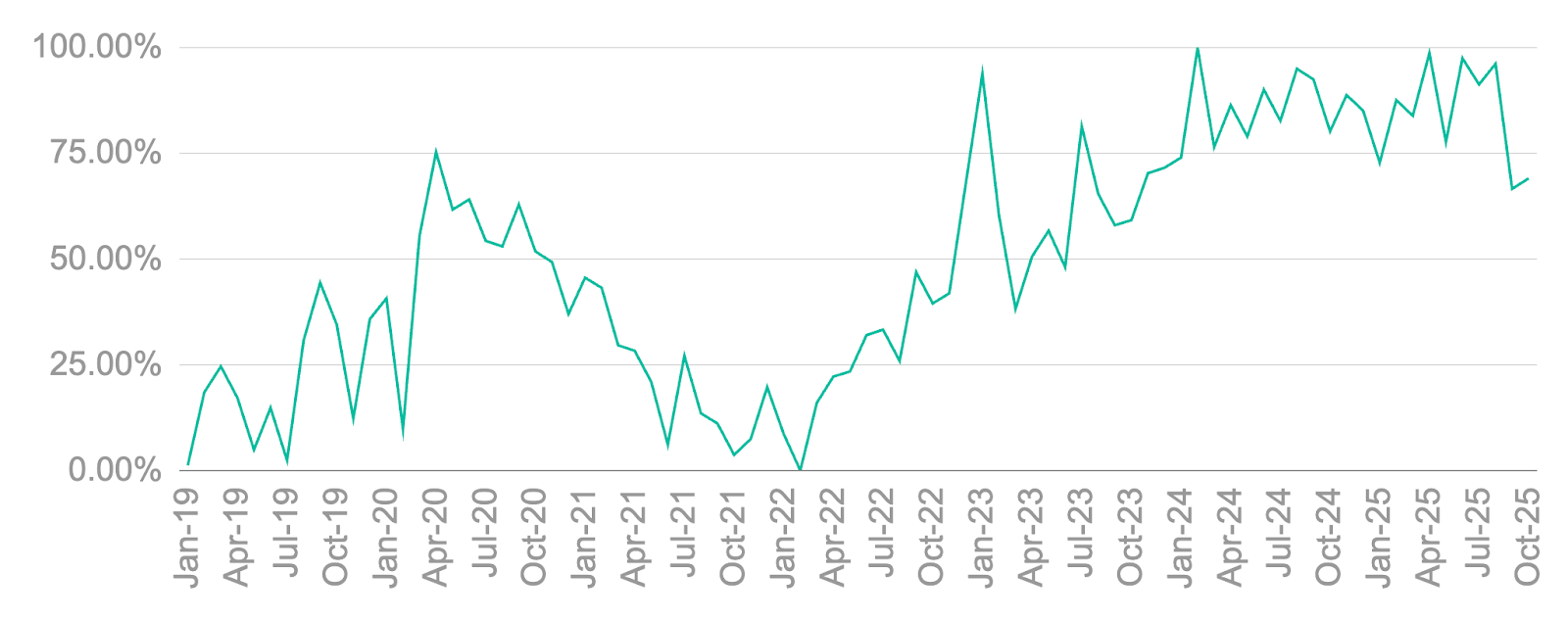
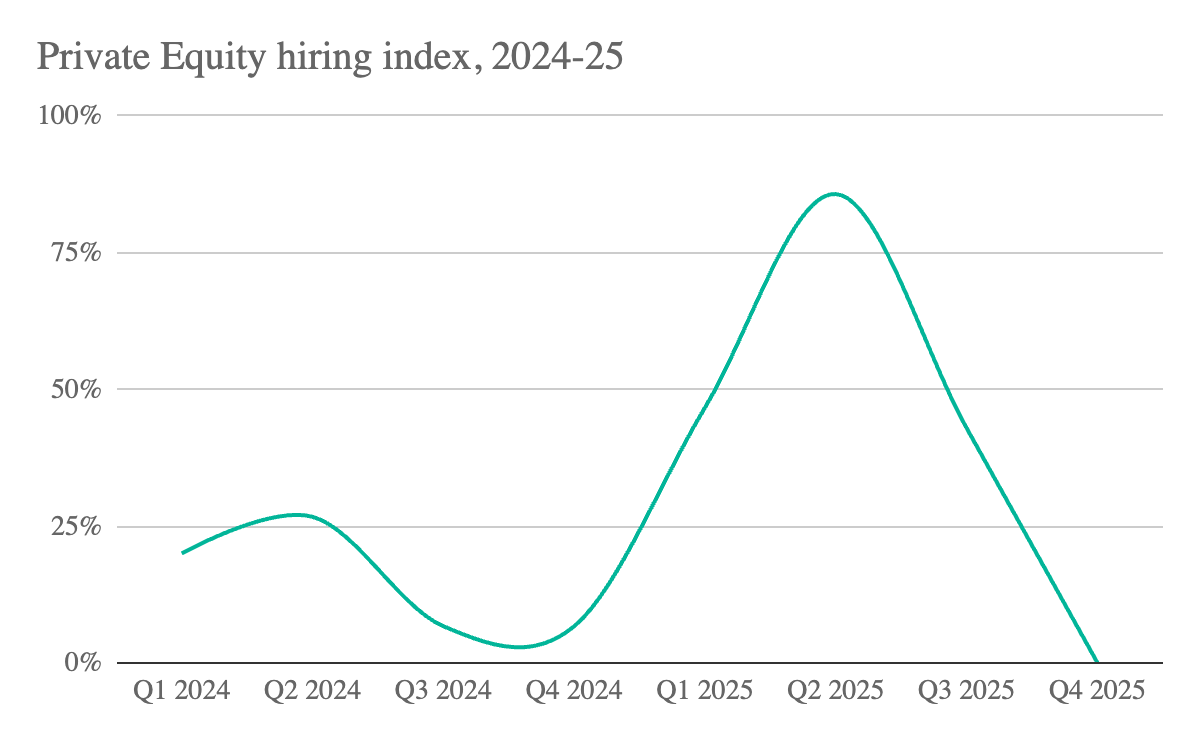
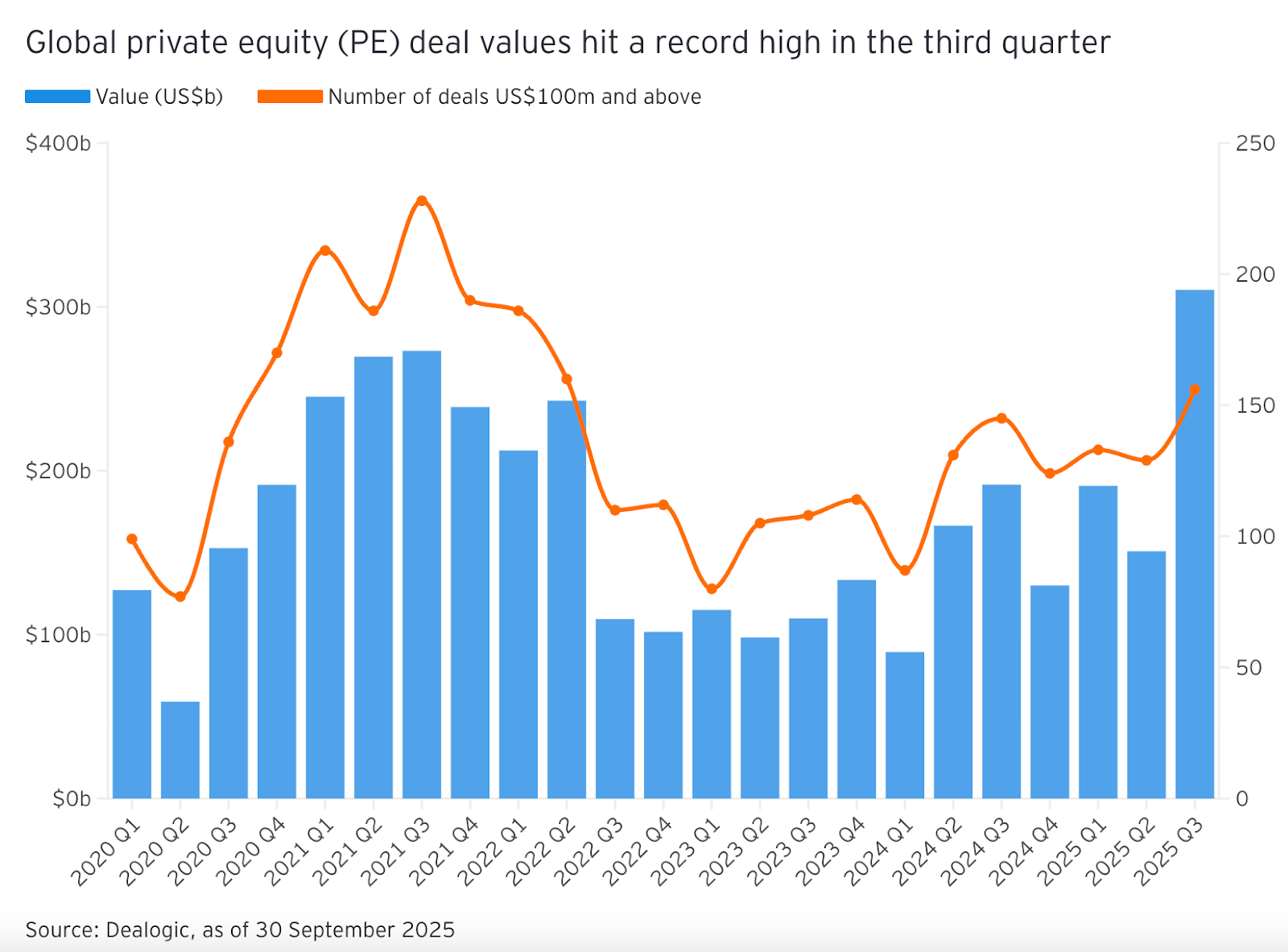
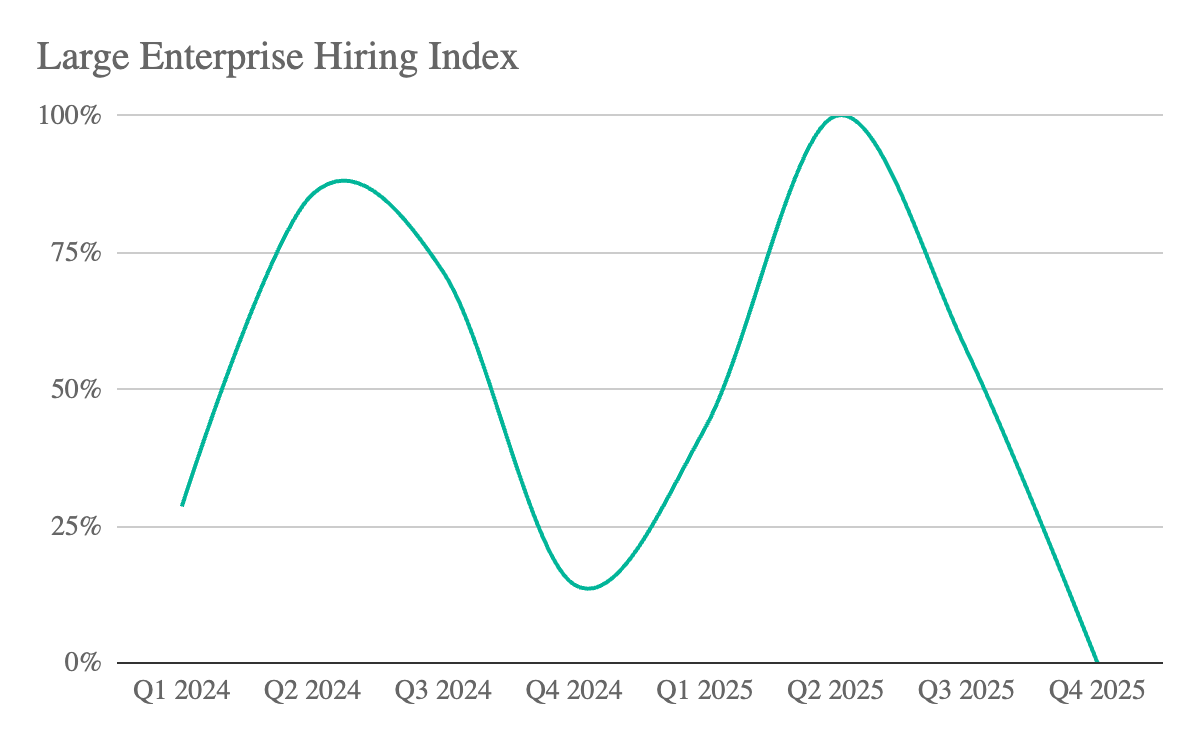
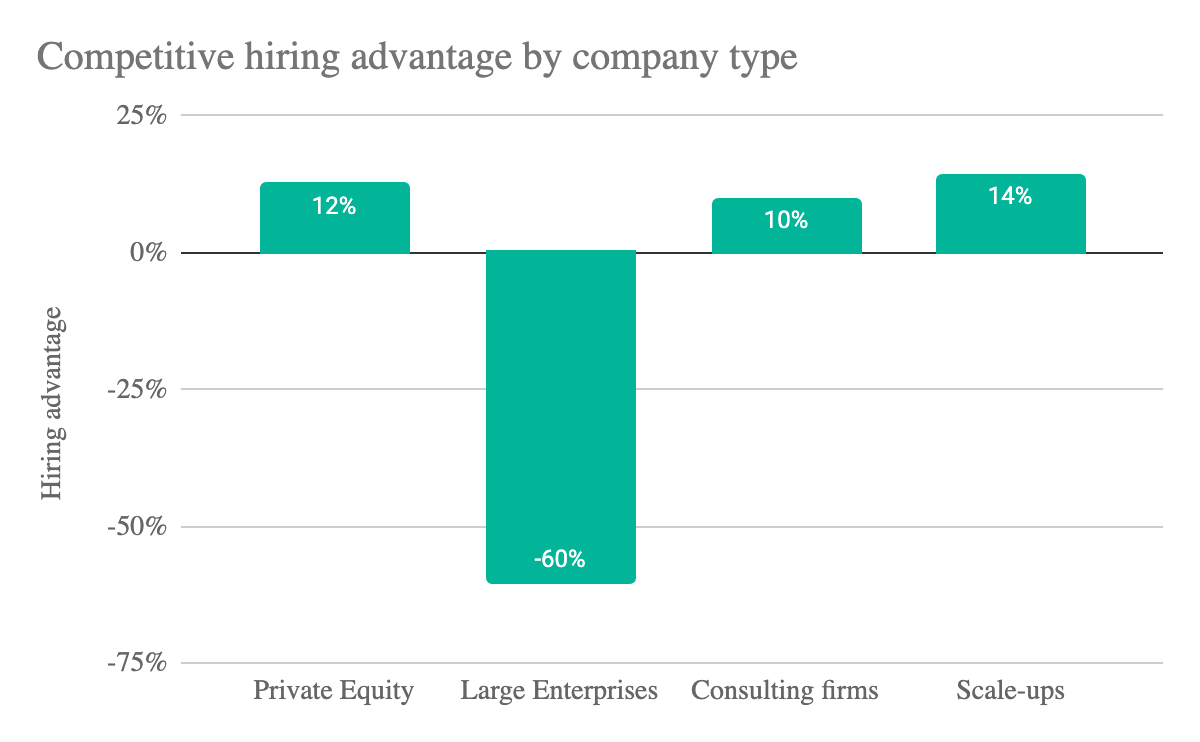
.jpg)

.png)

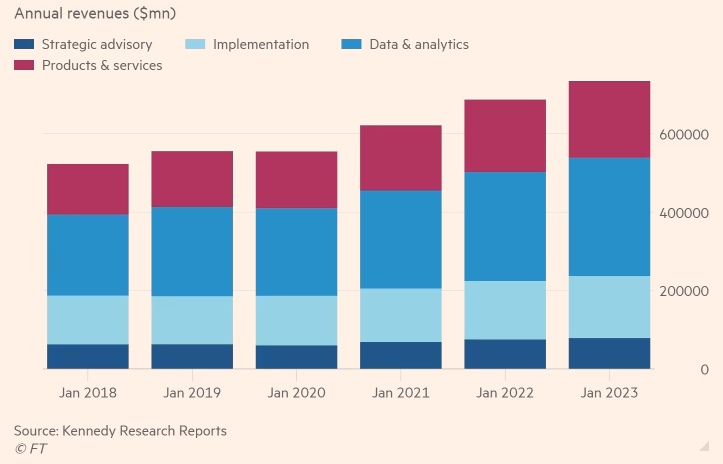
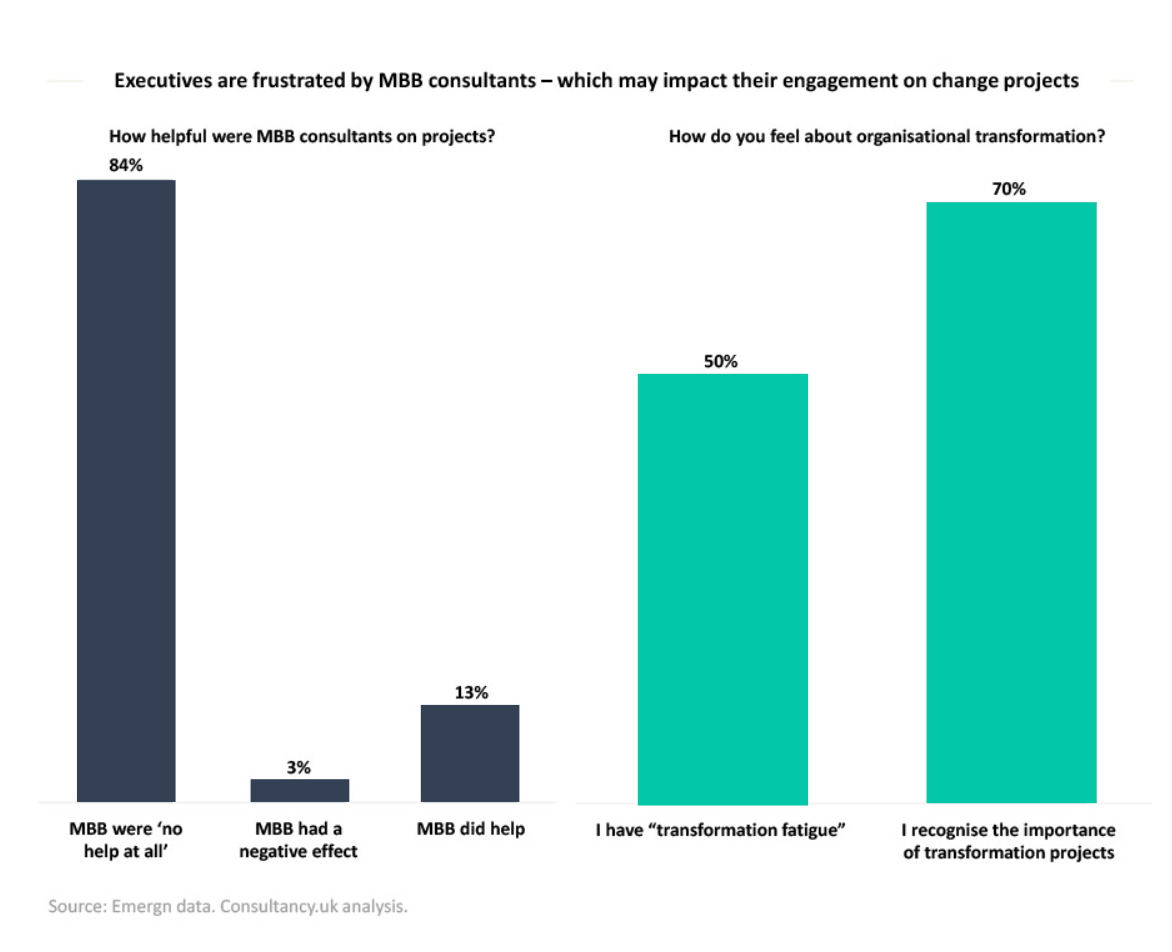
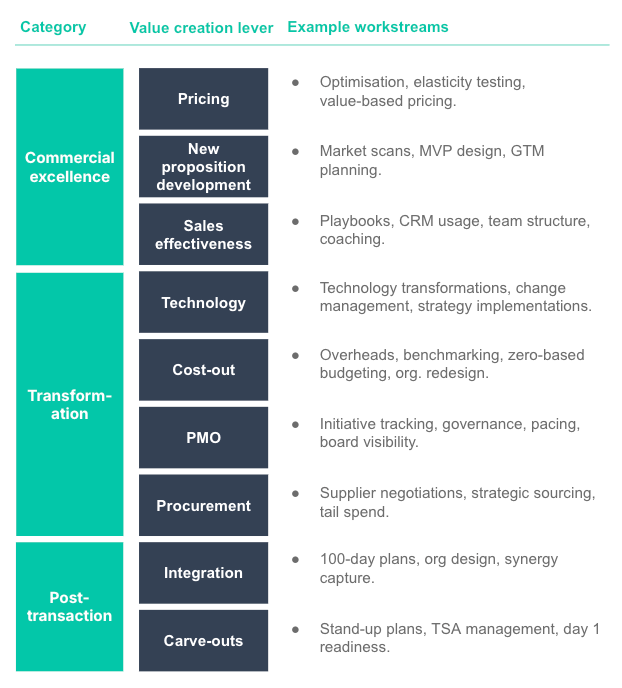


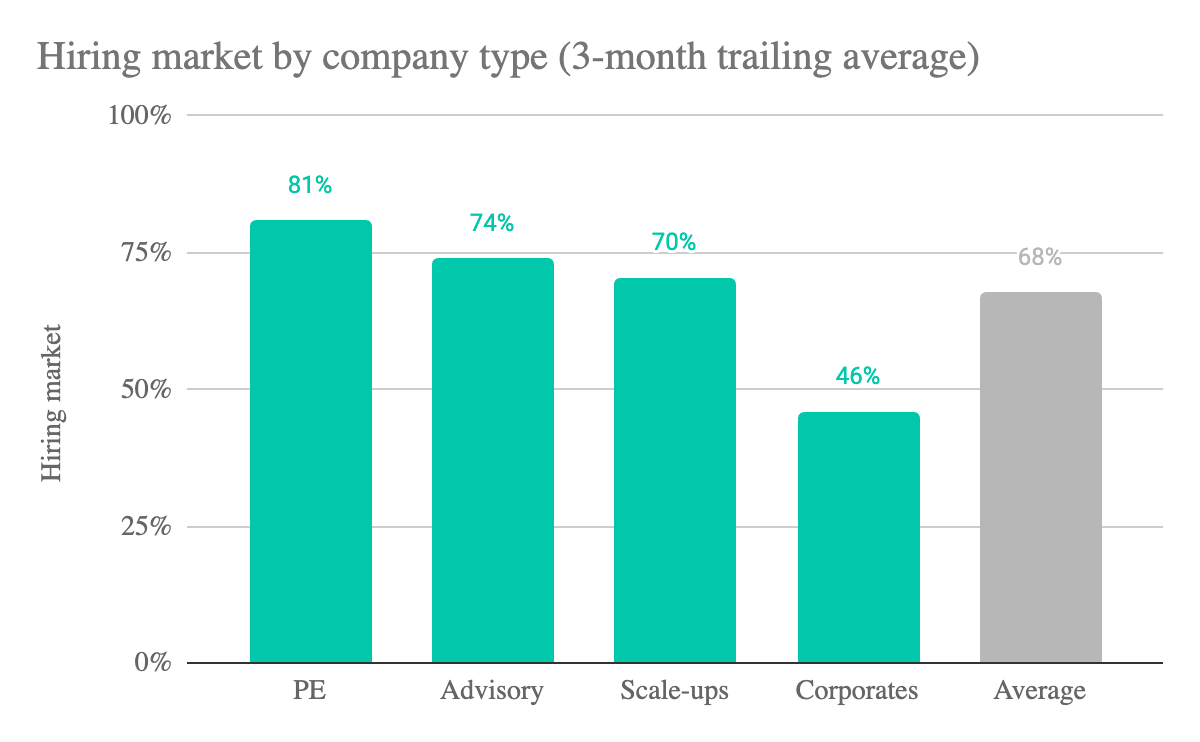
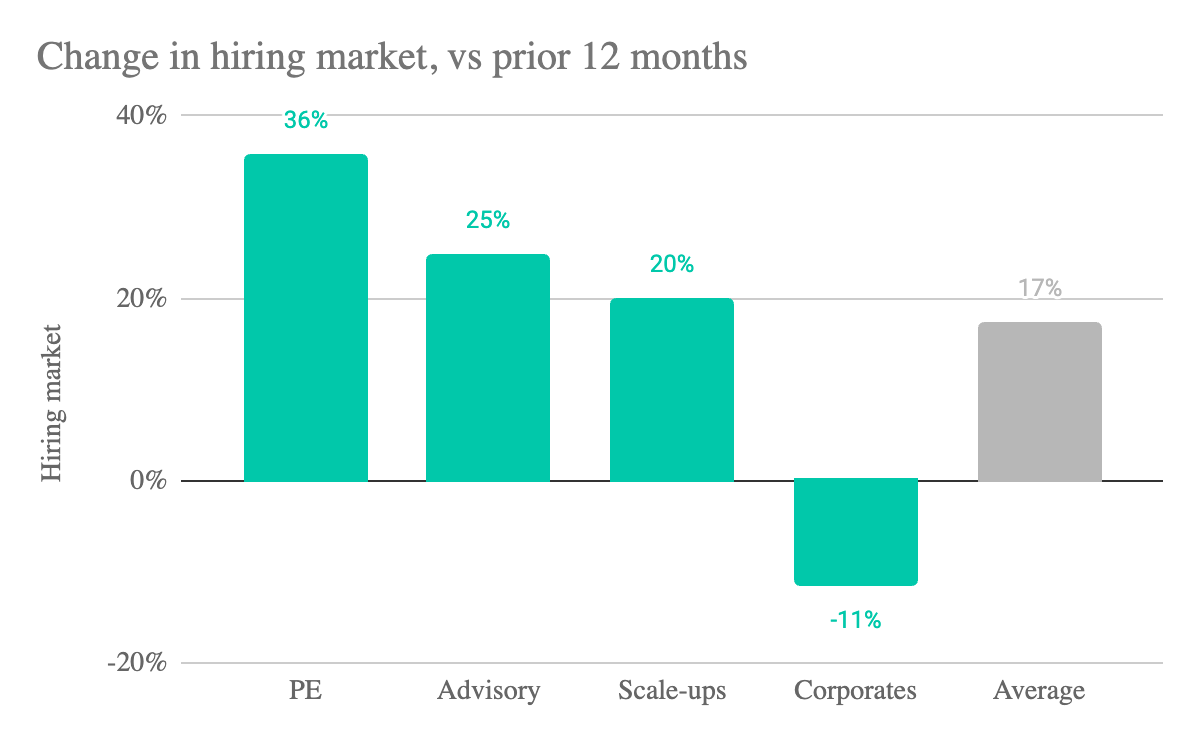


.jpg)
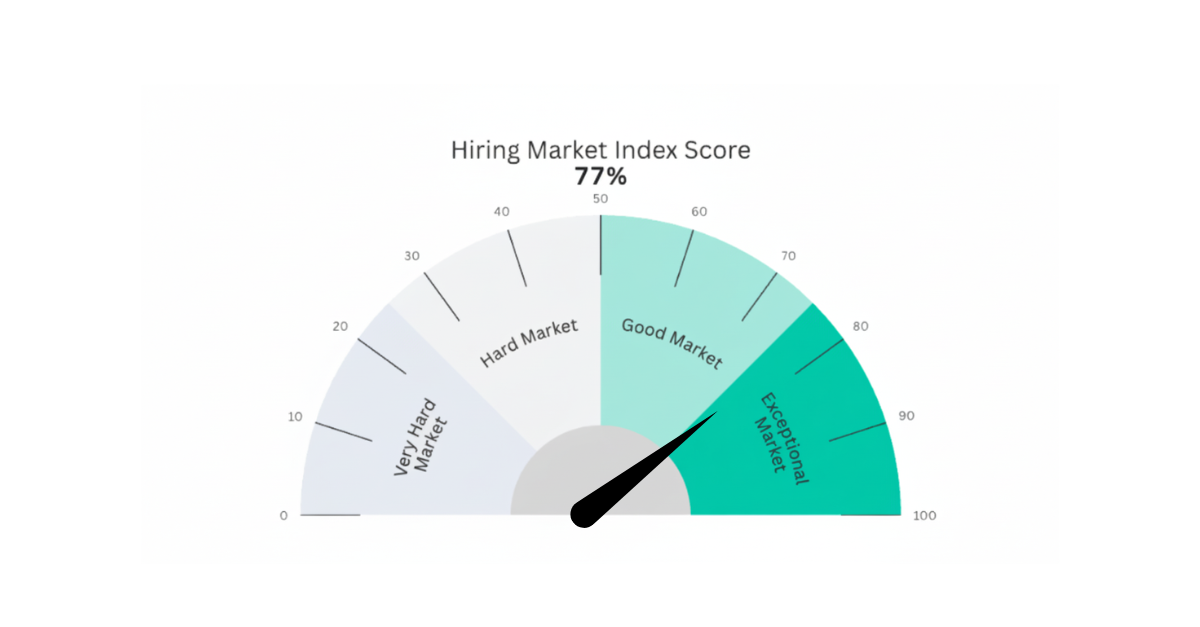
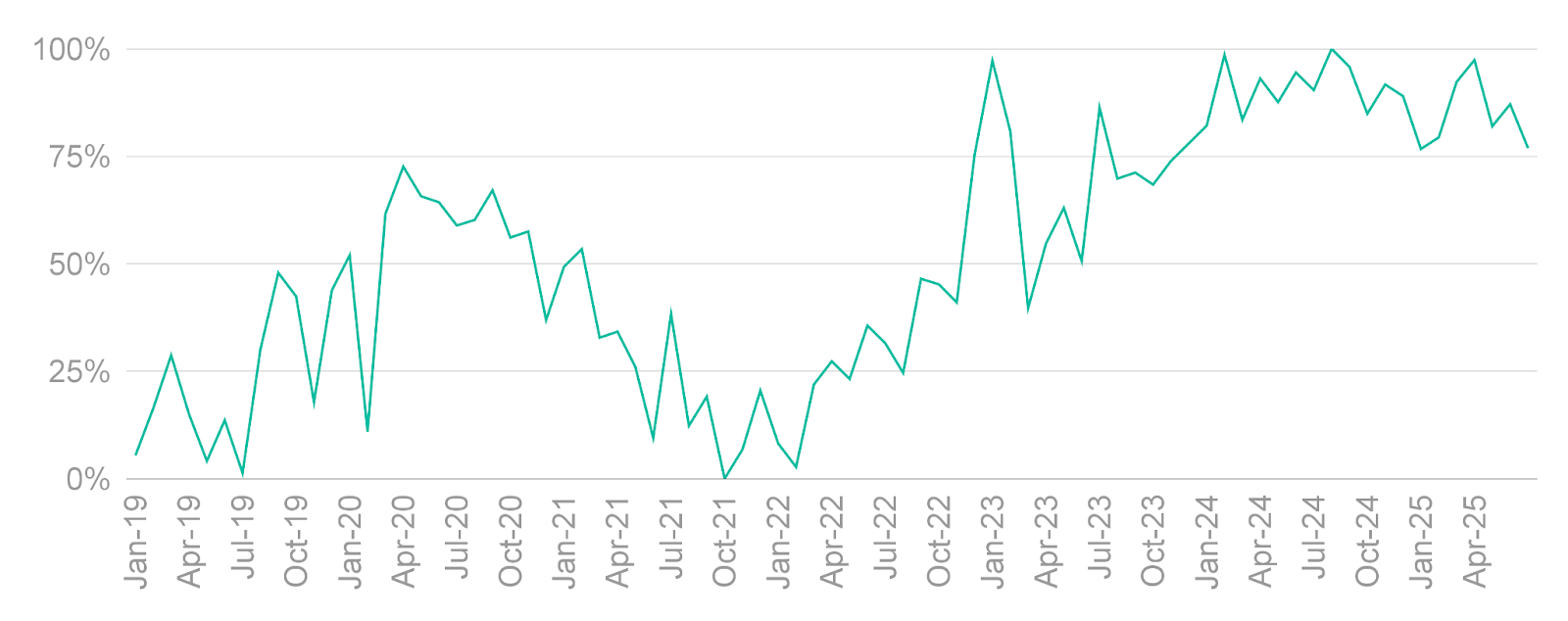
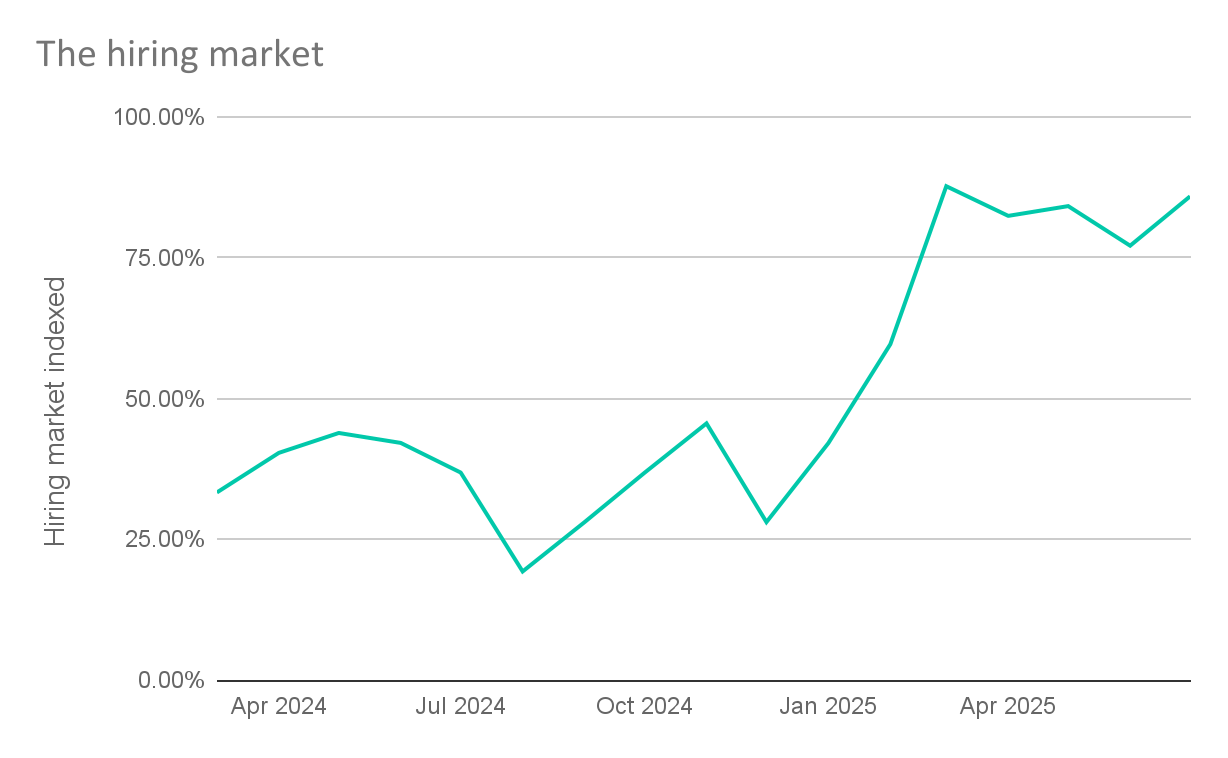



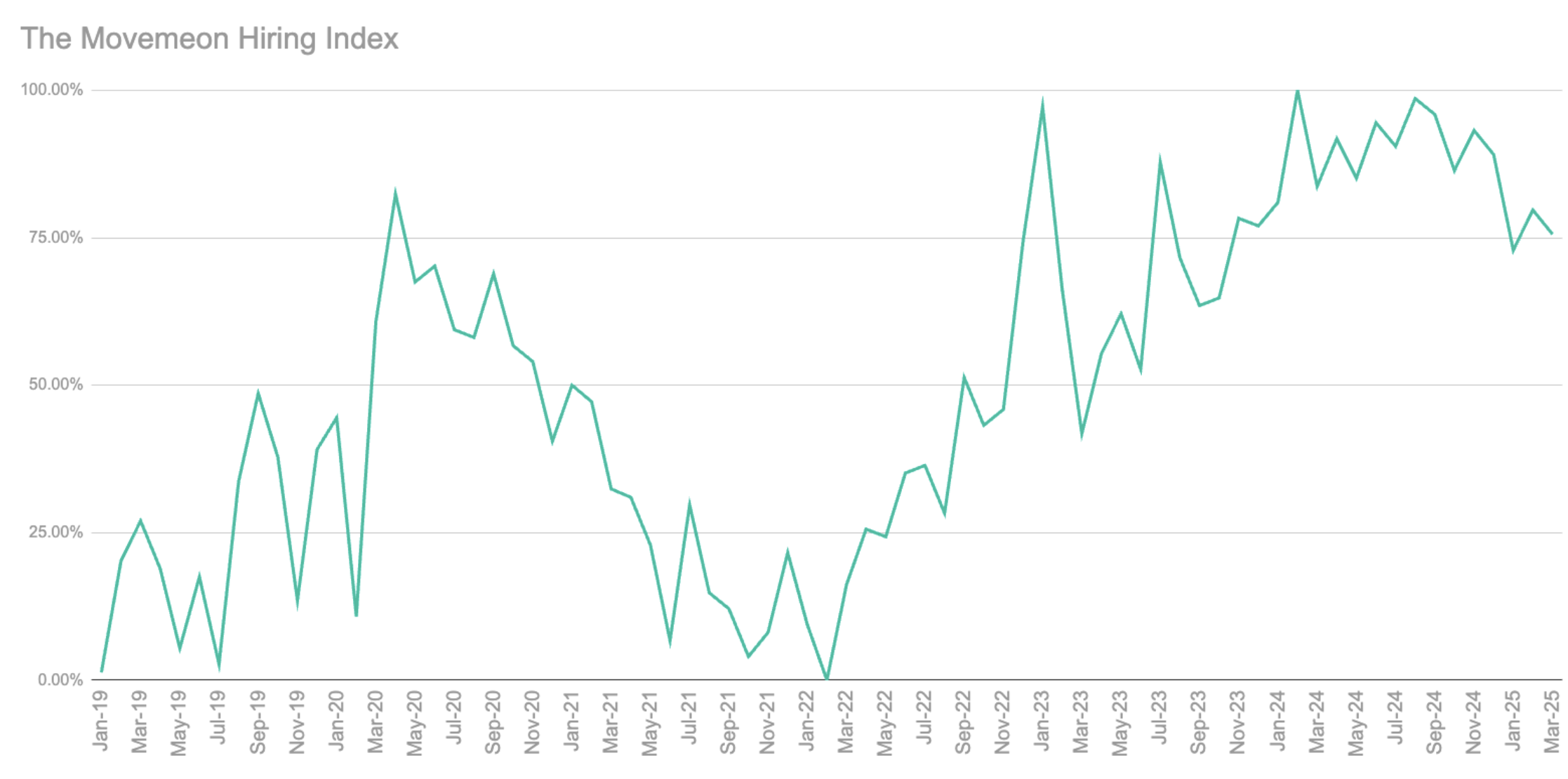







.jpg)

.png)
.png)





















.jpg)

